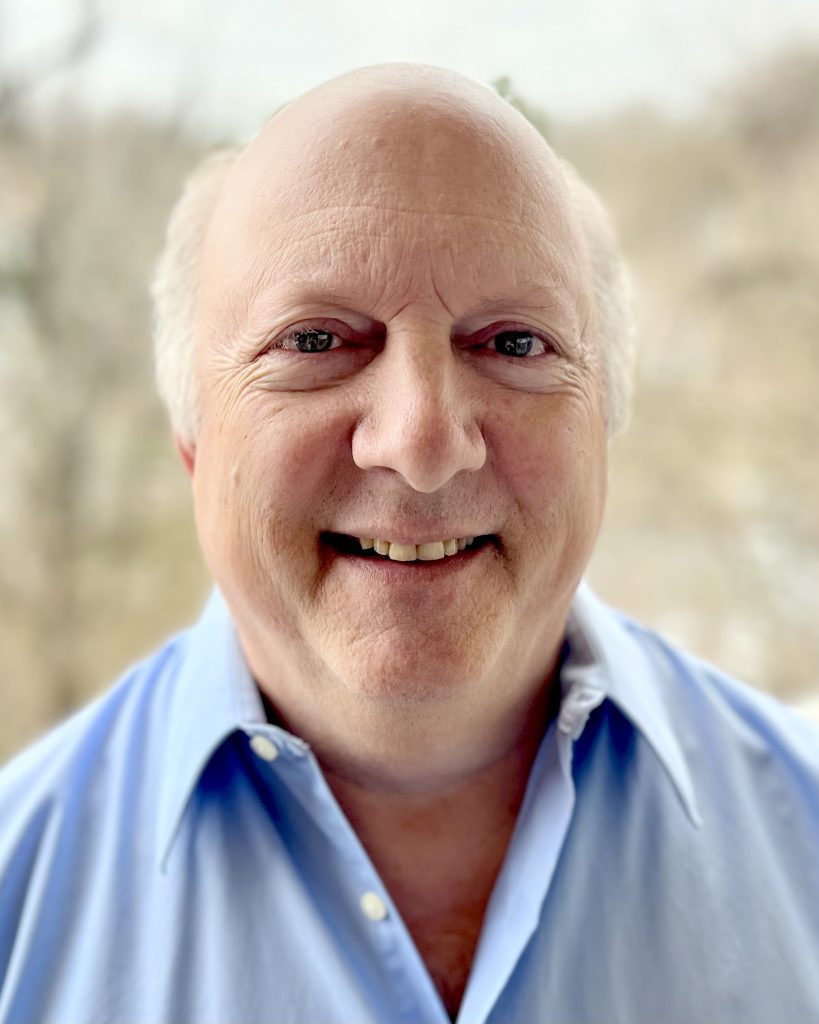He’s giving forward by building community through environmental action.
For Albert Kaufman, the drive to improve his community stems from a deeply personal place — the Jewish principle of “tikkun olam” or “repair the world.” This guiding philosophy, combined with his entrepreneurial spirit and technical expertise, has shaped his approach to community organizing in Portland and beyond. As he explains, “That was the main part of Judaism, to me, and I just continued to live it for much of my life.”

Kaufman’s journey as a community organizer began in 1998 in Seattle, where he got involved in neighborhood planning. This experience laid the foundation for his unique approach: combining traditional community organizing with digital tools and communication strategies. As a tech industry professional and partner of email provider Constant Contact, he learned to leverage email lists, newsletters, and social media to build movements and drive change.
“The combination of my skills and my passions really dovetailed really well,” Kaufman reflects. “I kept building my own email list, and then I eventually got involved with Constant Contact, teaching other people how to make use of email and how to create newsletters and use event marketing.”
Projects With Impact
Over the years, Kaufman has initiated and supported numerous environmental and community projects. He helped get Freecycle sites off the ground here and in other states. One of his most successful initiatives came as part of the group Quiet Clean PDX, which recently achieved a significant victory — securing a ban on gas-powered leaf blowers in Portland. The campaign exemplifies Kaufman’s approach: building a substantial email list (2,500 subscribers), maintaining consistent communication, and always including clear action steps for supporters. The impact has spread beyond Portland, inspiring similar initiatives in other cities and contributing to a national movement.
While Kaufman admits that he enjoys and appreciates a quieter neighborhood with less gas-powered machines in use, his motivation also extends toward improving the lives of the people who use the leaf blowers: “They’re breathing in the fumes, their bodies are shaking from the use of these tools,” and then, the life cycle of the leaf blower causes problems. “From cradle to grave, the leaf blower is a problem, whether it’s an environmental problem or a noise issue, or a health of the worker issue.”
Kaufman’s passion for trees manifests in multiple projects. He coordinates with Friends of Trees and participates in the Shade Equity Coalition, in which several Portland-based community organizations are working to remedy disparities in street tree canopies. He runs the “We Keep Trees Standing” Facebook group, which is focused on keeping trees standing and planting more trees. These efforts have helped secure funding for urban forestry and tree maintenance through Portland’s Clean Energy Fund.
Kaufman founded an innovative program called Farm My Yard, which uses a Facebook presence and an email list to connect people who don’t have places to garden to homeowners who want to have their yards farmed. This initiative not only helps provide food, in the case of homeowners who plant a fruit tree or strawberry patch, for instance, but also creates new opportunities for community connection. Furthering his food reduction efforts, he also started Share in the Harvest groups, which encourage people with surplus food from their yard or garden to share it with others.
Expanding on the Portland Fruit Tree Project’s initial concept, Kaufman has created a network of regional groups that facilitate fruit sharing and reduce food waste. The program has grown to include 10 regional groups covering areas from Salem to Southwest Washington.
Kaufman’s passion for trees runs deep. “Oregon’s forests sequester more carbon than any forests in the world,” he notes, “and when we just clear-cut them, we’re not only harming the forests and communities around us, but the drinking water too, and we’re contributing to species loss. We’re also raising the temperature of the planet and making it harder for our own species to continue living here.”
The Power of Action
What brings Kaufman the most satisfaction is seeing his initiatives take root and flourish independently. He shares the story of meeting a Share in the Harvest member at a solstice event who had been actively sharing strawberries with neighbors, evidence that his community-building efforts have created self-sustaining networks of mutual support.
Throughout his work, Kaufman emphasizes the importance of actionable steps. He believes it is crucial to give people steps to take. While it is important to entertain or inform, he says, the most important thing is to help people know what to do. “I think there should always be action steps with everything — every post on social media, every newsletter, every bit of outreach should always ask people to do something.” He believes this so strongly that sometimes he stops himself from sharing something if he isn’t himself clear on what the action step is going to be.
Relationship with SAGE
While Kaufman was already established in community organizing when he met SAGE’s leadership about 15 years ago, he recognized its vital role: “I think SAGE and other organizations… are training people to do the kind of activism that I’m already doing, to build movements to make changes.”
Kaufman appreciates that an organization such as SAGE gives people tools and a network to get started. He particularly values SAGE’s role in preventing talent waste among older adults:
“There is talent all around us, so many skilled people and once they’re no longer working for a living their talent is still valuable to society.”
Looking Forward
Kaufman continues to identify new challenges that need addressing, from light pollution to expanding tree coverage. His approach remains consistent: identify problems that affect quality of life, build networks of concerned citizens, and create clear pathways for action. His message to others considering community involvement is clear: everyone has valuable skills and experience to contribute. Through organizations like SAGE and grassroots initiatives, these contributions can create lasting positive change in our communities.
“There’s already enough stress in the world,” he says. “If you can turn off some of this noise, turn down some of these lights, and let people think better and sleep better, your whole environment is better.”
If you would like to learn more, contact SAGE.
